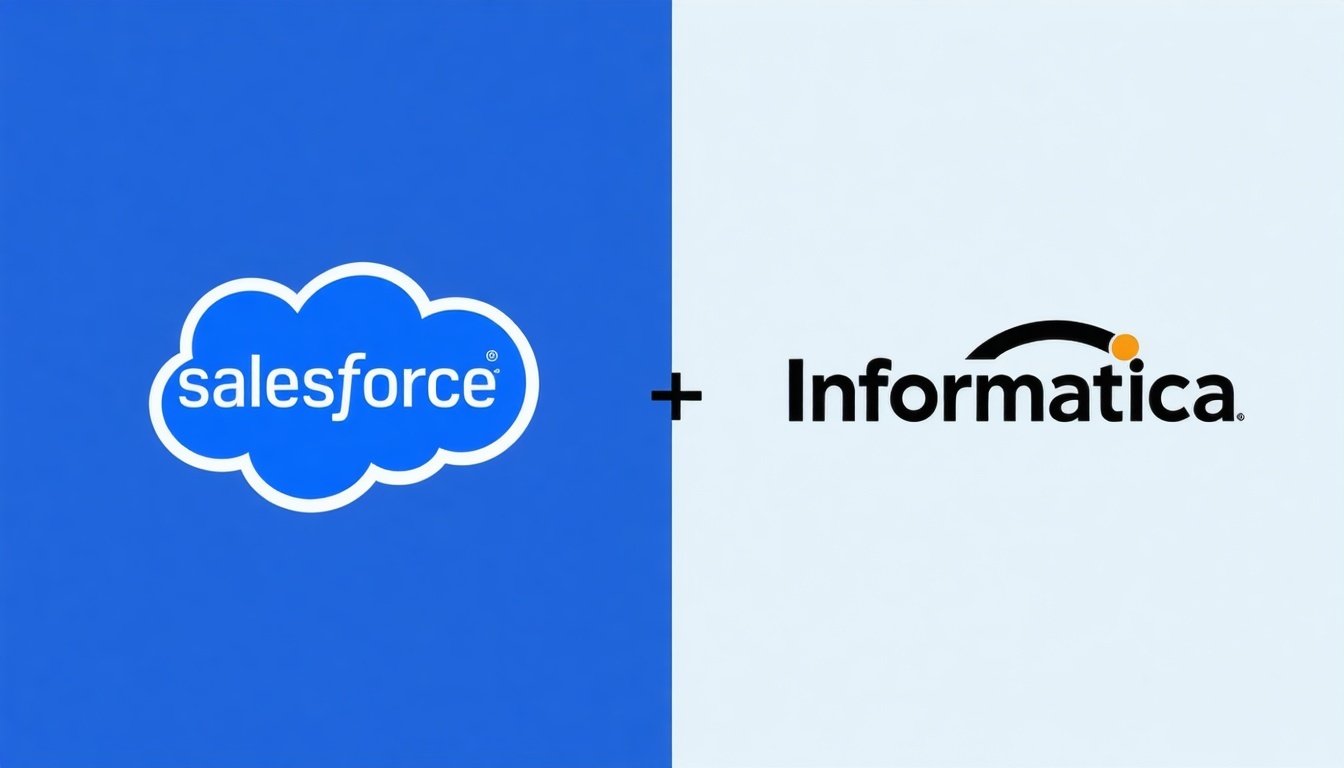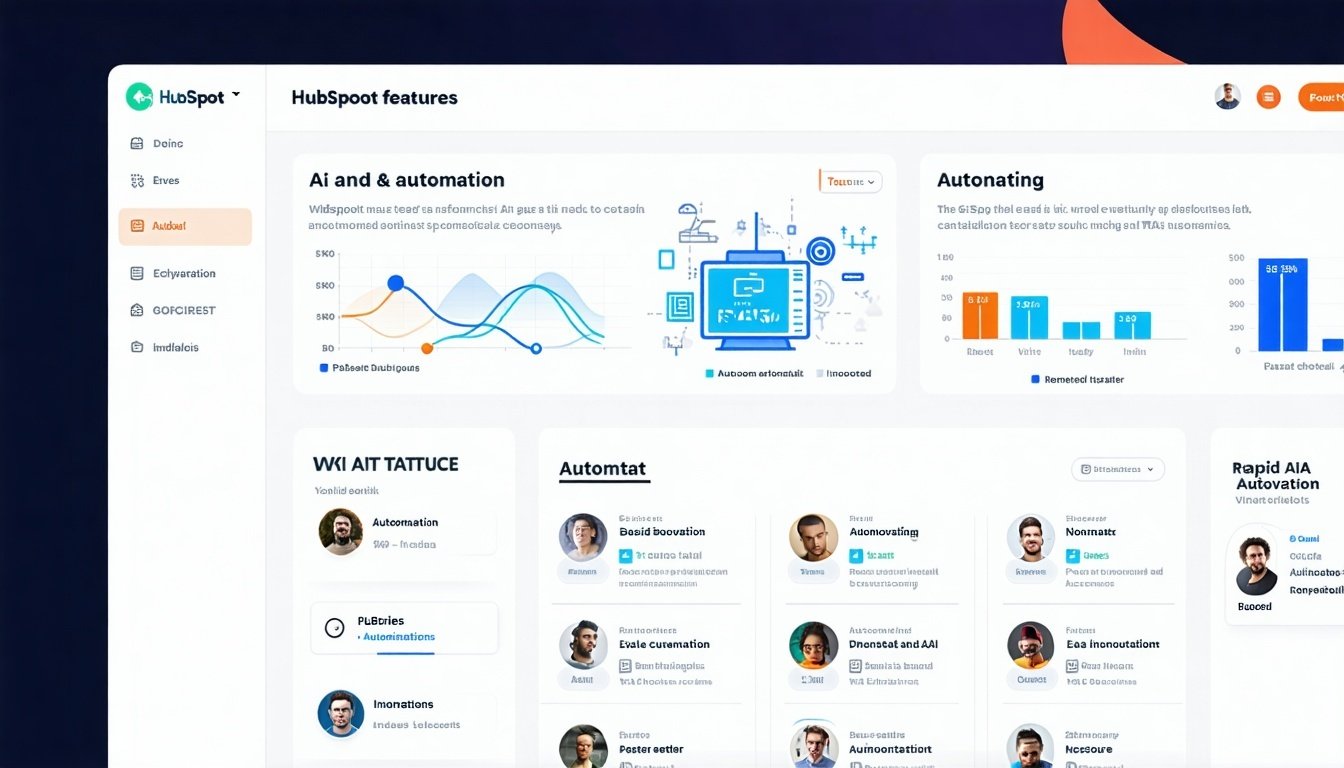
Salesforce's $8 billion acquisition of Informatica marks a pivotal moment in the enterprise AI landscape. This comprehensive blog post explores the strategic synergies, market impact, and future outlook of this landmark deal.
Understanding the $8 Billion Deal
In a monumental move that has sent ripples through the enterprise AI landscape, Salesforce announced on May 27, 2025, its acquisition of cloud data management leader Informatica for $8 billion. This is one of Salesforce’s largest deals since its $28 billion acquisition of Slack in 2021, highlighting the company’s strategic ambition to dominate the AI-powered enterprise solutions market.
The deal involves Salesforce paying $25 in cash per share for Informatica’s Class A and Class B common stock. This transaction, already approved by the boards of directors of both companies, is slated to close early in Salesforce's fiscal year 2027. The acquisition will be funded through a combination of cash on Salesforce’s balance sheet and new debt, marking a significant financial maneuver to bolster its AI capabilities.
Strategic Synergies: AI Meets Data Management
The fusion of Salesforce’s AI CRM platform with Informatica’s robust data management tools is set to create a formidable AI-data platform. Salesforce’s Einstein AI and Data Cloud will be enhanced by Informatica’s CLAIRE AI, Master Data Management (MDM), and governance capabilities. This merger addresses three critical components for enterprise-grade AI: data transparency, understanding, and governance.
Marc Benioff, Salesforce’s Chair and CEO, emphasized that this combination would forge the ultimate AI-data platform, enabling autonomous agents to operate safely, responsibly, and at scale. Informatica's advanced integration, catalog, and lineage tools will ensure data transparency, while its metadata and unified data model will empower AI agents with contextual data understanding. Furthermore, Informatica’s MDM and data quality controls will ensure standardized, accurate, and secure data governance.
Market Impact: Shaking Up the Enterprise Data Landscape
Salesforce’s acquisition of Informatica is a strategic maneuver to fortify its position in the $150 billion enterprise data market. By integrating the world’s leading AI CRM with Informatica’s top-tier data management platform, Salesforce is poised to challenge competitors like Microsoft, Oracle, and various cloud providers more aggressively.
This acquisition mirrors broader industry trends toward consolidation, as companies strive to offer comprehensive, integrated solutions rather than isolated products. The enhanced capabilities from this merger are expected to drive Salesforce’s competitive edge, pressuring other tech giants to pursue similar strategic acquisitions to keep pace.
Integration Roadmap: Blending Capabilities for Maximum Impact
Salesforce plans to seamlessly integrate Informatica’s technology stack into its ecosystem, notably enhancing platforms such as Agentforce, MuleSoft, and Tableau. Informatica’s data integration, quality, governance, and unified metadata will be incorporated to create a single data pipeline with MDM on Data Cloud.
The integration will also bolster Salesforce’s Customer 360 and Data Cloud offerings, ensuring that data across organizations is unified, trusted, and actionable. Salesforce’s MuleSoft will benefit from enriched, standardized, and trustworthy data flowing through its APIs, while Tableau users will gain richer, context-driven insights.
Future Outlook: The Road Ahead for AI-Driven Enterprises
The Salesforce-Informatica acquisition represents a significant leap forward in the enterprise AI landscape. The combined platform promises to deliver AI agents capable of acting with intelligence, context, and confidence across complex enterprise systems. This could accelerate the adoption of autonomous AI in business processes, transforming how companies operate.
Particularly in sectors like healthcare, finance, and public services, the enhanced AI capabilities are expected to drive innovation and efficiency. As Salesforce integrates Informatica’s tools into its ecosystem, businesses can anticipate more personalized and effective customer experiences, underpinned by trusted data.




